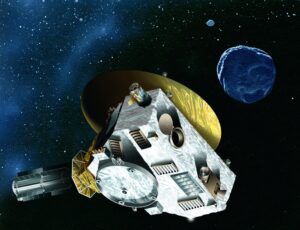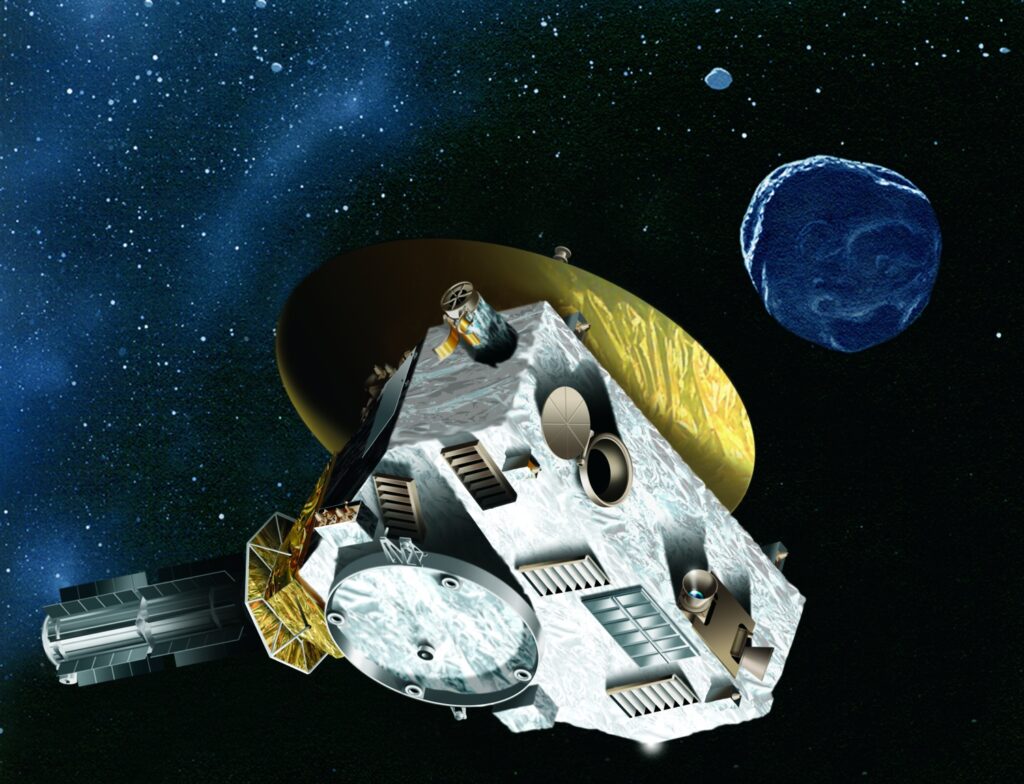Initial curation of NASA's OSIRIS-REx sample delayed
Sunday, 01 October 2023 21:39 The initial curation process for NASA's OSIRIS-REx sample of asteroid Bennu is moving slower than anticipated, but for the best reason: the sample runneth over. The abundance of material found when the science canister lid was removed earlier this week has meant that the process of disassembling the TAGSAM (Touch-and-Go Sample Acquisition Mechanism) head - which holds the bulk of material from t
The initial curation process for NASA's OSIRIS-REx sample of asteroid Bennu is moving slower than anticipated, but for the best reason: the sample runneth over. The abundance of material found when the science canister lid was removed earlier this week has meant that the process of disassembling the TAGSAM (Touch-and-Go Sample Acquisition Mechanism) head - which holds the bulk of material from t Chang'e 6 scheduled for lunar landing next year
Sunday, 01 October 2023 21:39 The Chang'e 6 mission, China's next robotic expedition to the moon, has been scheduled to land on the moon next year, tasked with bringing back samples from the little-known far side, according to the China National Space Administration.
So far, the Chang'e 6 project has progressed smoothly and according to plan, the administration said in a news release on Friday.
To facilitate comm
The Chang'e 6 mission, China's next robotic expedition to the moon, has been scheduled to land on the moon next year, tasked with bringing back samples from the little-known far side, according to the China National Space Administration.
So far, the Chang'e 6 project has progressed smoothly and according to plan, the administration said in a news release on Friday.
To facilitate comm Double DRT for a Soliday: Sols 3964-3965:
Sunday, 01 October 2023 21:39 Earth planning date: Friday, September 29, 2023: Welcome to another weekend in Gale crater, Mars! As Abigail Knight described in Wednesday's blog, we elected not to drive last plan while we waited for the workspace imaging from Navcam and Mastcam to arrive on Earth. All went as expected and we received the necessary imaging to assess the terrain well enough for using our DRT on the beautiful lig
Earth planning date: Friday, September 29, 2023: Welcome to another weekend in Gale crater, Mars! As Abigail Knight described in Wednesday's blog, we elected not to drive last plan while we waited for the workspace imaging from Navcam and Mastcam to arrive on Earth. All went as expected and we received the necessary imaging to assess the terrain well enough for using our DRT on the beautiful lig Dust removal delayed: Sols 3962-3963
Sunday, 01 October 2023 21:39 Earth planning date: Wednesday, September 27, 2023: Our exploration of the light-and-dark-toned bands continues today as Curiosity has completed another successful drive and now has a promising block of light-toned bedrock in its latest workspace. With a thorough investigation of the compositions and textures within this region, we hope to identify what factors cause the differences between the
Earth planning date: Wednesday, September 27, 2023: Our exploration of the light-and-dark-toned bands continues today as Curiosity has completed another successful drive and now has a promising block of light-toned bedrock in its latest workspace. With a thorough investigation of the compositions and textures within this region, we hope to identify what factors cause the differences between the Stopgap spending bill includes FAA learning period extension
Sunday, 01 October 2023 15:54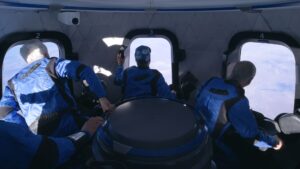
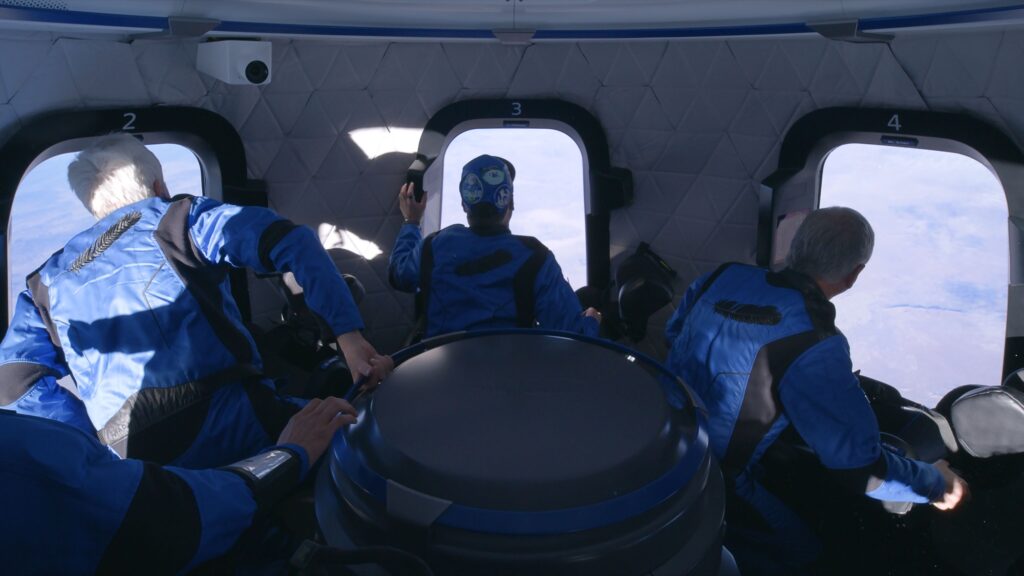
Indian spacecraft heads towards center of solar system
Sunday, 01 October 2023 09:31
India's sun-monitoring spacecraft has crossed a landmark point on its journey to escape "the sphere of Earth's influence", its space agency said, days after the disappointment of its moon rover failing to awaken.
The Aditya-L1 mission, which started its four-month journey towards the center of the solar system on September 2, carries instruments to observe the sun's outermost layers.
"The spacecraft has escaped the sphere of Earth's influence," the Indian Space Research Organisation (ISRO) said in a statement late Saturday.
Aditya, named after the Hindu sun deity, has traveled 920,000 kilometers (570,000 miles), just over half the journey's total distance.
At that point, the gravitational forces of both astronomical bodies cancel out, allowing the mission to remain in a stable halo orbit around our nearest star.
"This is the second time in succession that ISRO could send a spacecraft outside the sphere of influence of the Earth, the first time being the Mars Orbiter Mission", the agency added.
In August, India became the first country to land a craft near the largely unexplored lunar south pole, and just the fourth nation to land on the moon.
India's private space sector skyrockets
Sunday, 01 October 2023 09:25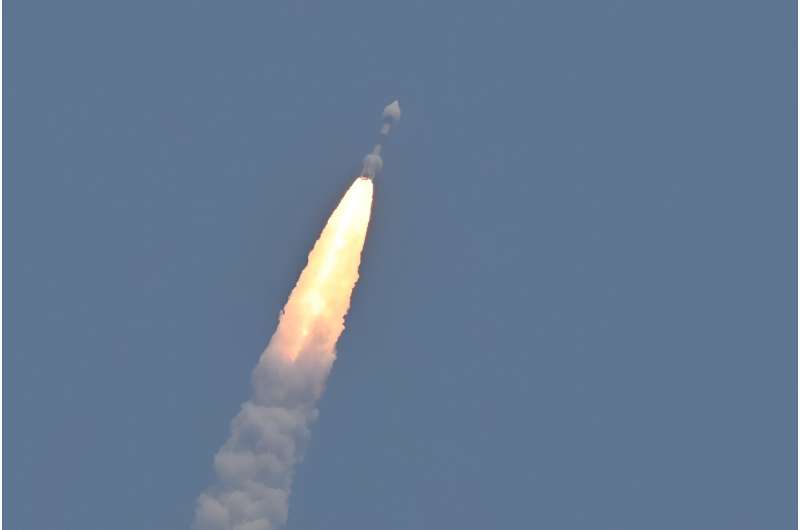
When Indian entrepreneur Awais Ahmed founded his satellite startup in Bangalore in 2019, his country was still a year away from opening the space industry to the private sector.
"When we started, there was absolutely no support, no momentum," said Ahmed, who was 21 when he founded Pixxel, a company deploying a constellation of Earth imaging satellites.
Since then, the private space sector has taken off in India, joining a rapidly growing global market.
There are now 190 Indian space start-ups, twice as many as a year earlier, with private investments jumping by 77 percent between 2021 and 2022, according to Deloitte consultancy.
"A lot of Indian investors were not willing to look at space technology, because it was too much of a risk earlier," Ahmed said in an interview with AFP.
NASA selects SpaceX for rideshare launch of smallsat mission
Saturday, 30 September 2023 20:49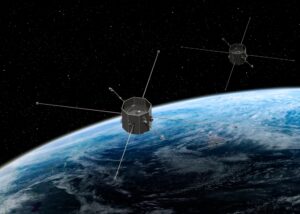
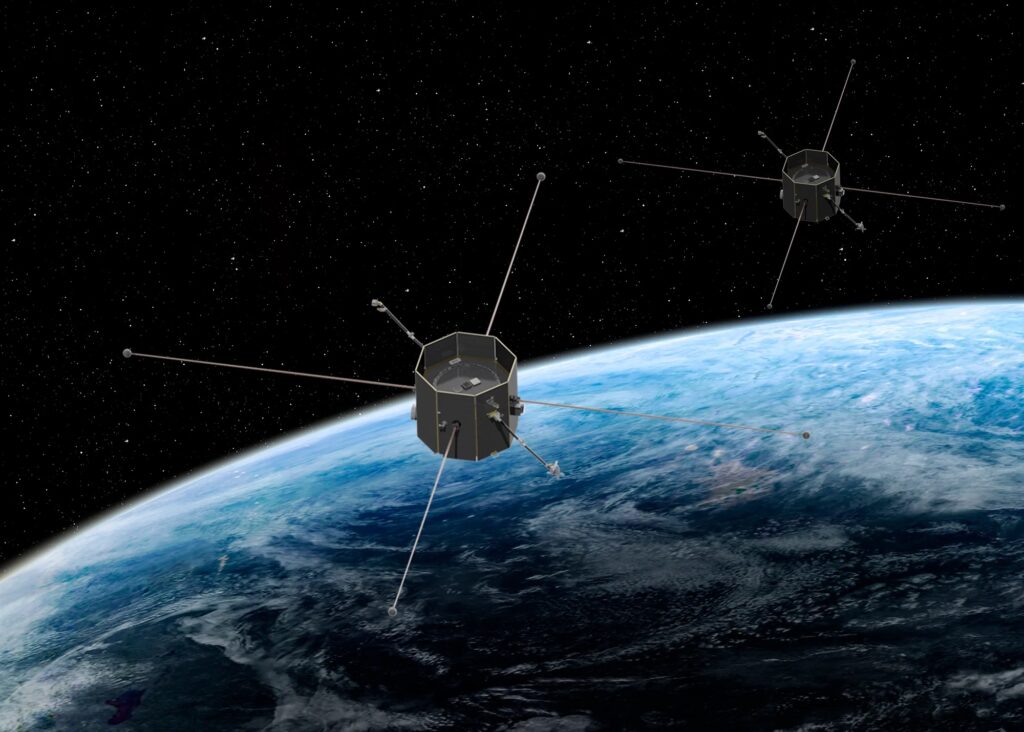
Record-breaking launch of SpaceX's Starlink satellites
Saturday, 30 September 2023 11:58 SpaceX pushed back the launch time from the original T-0 of 6:49 p.m. EDT (2249 UTC Sep. 30) more than three hours later due to the weather condition. At 10:00 p.m. EDT (0200 UTC Sep. 30), a Falcon 9 rocket launched 22 of SpaceX's "V2 Mini" internet satellites for its Starlink communications network from Space Launch Complex 40 (SLC-40) at the Cape Canaveral Space Force Station (CCSFS) in Florid
SpaceX pushed back the launch time from the original T-0 of 6:49 p.m. EDT (2249 UTC Sep. 30) more than three hours later due to the weather condition. At 10:00 p.m. EDT (0200 UTC Sep. 30), a Falcon 9 rocket launched 22 of SpaceX's "V2 Mini" internet satellites for its Starlink communications network from Space Launch Complex 40 (SLC-40) at the Cape Canaveral Space Force Station (CCSFS) in Florid Space Development Agency funds demonstration of satellite laser links in ‘degraded’ environments
Friday, 29 September 2023 17:46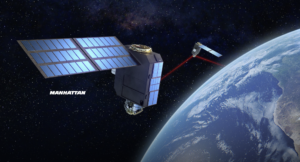
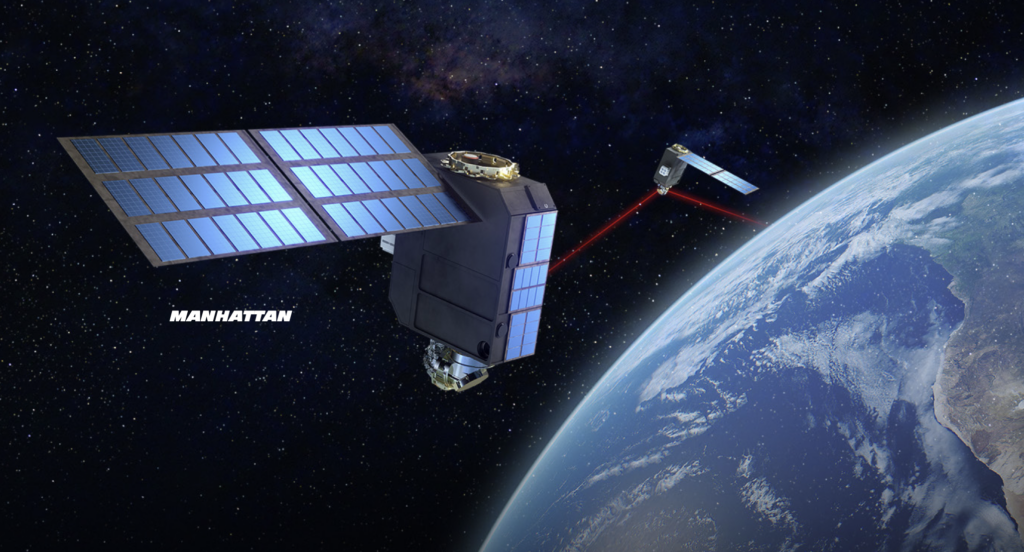
NASA's Perseverance captures dust-filled Martian whirlwind
Friday, 29 September 2023 15:56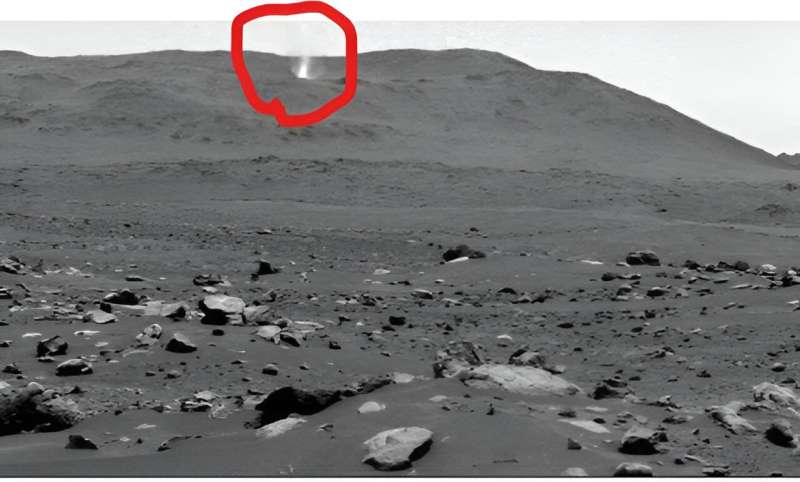
The lower portion of a Martian dust devil was captured moving along the western rim of Mars' Jezero Crater by NASA's Perseverance rover on Aug. 30, 2023, the 899th Martian day, or sol, of the mission. The video, which was sped up 20 times, is composed of 21 frames taken four seconds apart by one of the rover's Navcams.
Much weaker and generally smaller than Earth's tornadoes, dust devils are one of the mechanisms that move and redistribute dust around Mars. Scientists study them to better understand the Martian atmosphere and improve their weather models.
Using data from the imagery, mission scientists determined that this particular dust devil was about 2.5 miles (4 kilometers) away, at a location nicknamed "Thorofare Ridge," and moving east to west at about 12 mph (19 kph). They calculated its width to be about 200 feet (60 meters). And while only the bottom 387 feet (118 meters) of the swirling vortex are visible in the camera frame, the scientists could also estimate its full height.
Eutelsat investors approve OneWeb merger for satellite internet
Friday, 29 September 2023 12:19 Shareholders of European satellite operator Eutelsat approved Thursday a $3.4 billion merger deal with Britain's OneWeb, with the new entity out to become a global broadband internet champion to rival the likes of Elon Musk's Starlink.
The approval came at an extraordinary general meeting for a partnership targeting sales of "some two billion euros ($2.1 billion) in 2027", equivalent to doub
Shareholders of European satellite operator Eutelsat approved Thursday a $3.4 billion merger deal with Britain's OneWeb, with the new entity out to become a global broadband internet champion to rival the likes of Elon Musk's Starlink.
The approval came at an extraordinary general meeting for a partnership targeting sales of "some two billion euros ($2.1 billion) in 2027", equivalent to doub ANSRs to Hard AI Questions
Friday, 29 September 2023 12:19 How can we build robust, assured, and therefore trustworthy AI-based systems? That question lies at the heart of DARPA's Assured Neuro Symbolic Learning and Reasoning (ANSR) program.
"Informally, trust is an expression of confidence in an autonomous system's ability to perform an underspecified task," said Dr. Alvaro Velasquez, DARPA's ANSR program manager. "Ensuring autonomous systems wil
How can we build robust, assured, and therefore trustworthy AI-based systems? That question lies at the heart of DARPA's Assured Neuro Symbolic Learning and Reasoning (ANSR) program.
"Informally, trust is an expression of confidence in an autonomous system's ability to perform an underspecified task," said Dr. Alvaro Velasquez, DARPA's ANSR program manager. "Ensuring autonomous systems wil Artel partners with Rivada for US Space Force contract
Friday, 29 September 2023 12:19 Artel LLC a provider of secure network communication services to U.S. government agencies, has been awarded a Commercial Satellite Communications Proliferated Low Earth Orbit (p-LEO) contract from the U.S. Space Force and is partnering with Rivada Space Networks to provide the next generation network critical to support U.S. Government communications.
Based in the U.S, Artel is a carrier-a
Artel LLC a provider of secure network communication services to U.S. government agencies, has been awarded a Commercial Satellite Communications Proliferated Low Earth Orbit (p-LEO) contract from the U.S. Space Force and is partnering with Rivada Space Networks to provide the next generation network critical to support U.S. Government communications.
Based in the U.S, Artel is a carrier-a 

